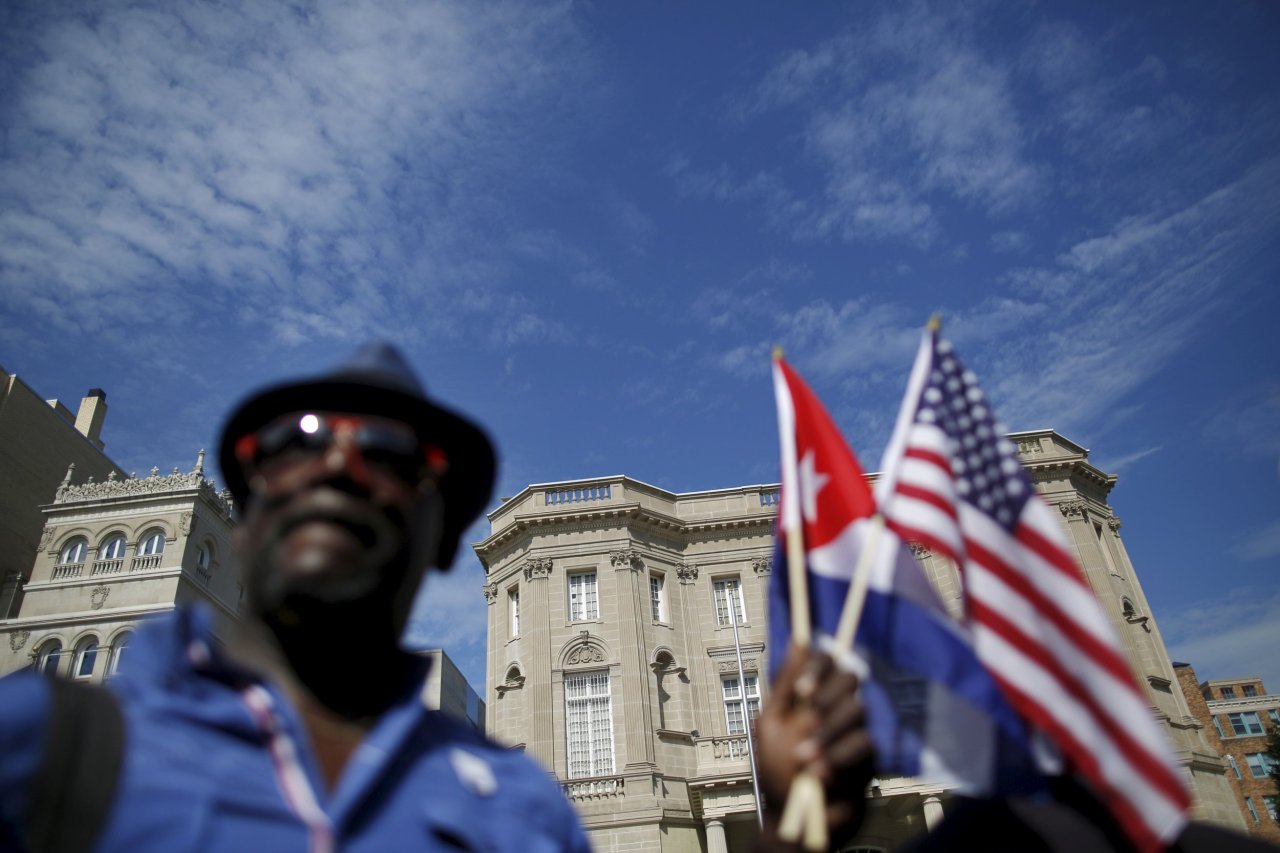It sounded like something out of Spy vs. Spy, the satirical Cold War comic featuring two black- and white-clad slapstick characters trying to destroy one another with bombs and booby traps.
Last year, secret agents in Havana began bombarding American diplomats with a mysterious weapon that used sound waves to damage their hearing, among "other symptoms." Or so the Trump administration indicated in August, months after it announced the expulsion of two low-ranking Cuban officials in retaliation for the alleged attack.
As critics began to ask why U.S. officials have yet to identify the victims or a motive, the State Department backed away from blaming Cuba for the assault. Meanwhile, scientists and intelligence analysts continue to question whether undetected sound waves could cause a sudden onset of hearing loss. "[Audiologists] are all scratching our heads about what the cause could be," says Colleen G. Le Prell, professor of hearing science and head of the doctoral audiology program at the University of Texas at Dallas. "None of us have a good explanation."
On August 9, the Associated Press broke news about the attacks, and the State Department acknowledged there had been a series of "incidents which have caused a variety of physical symptoms," effectively confirming the story without mentioning hearing loss. U.S. officials contacted doctors at University of Miami health services after the incidents were first reported. Weeks later, CBS quoted an unnamed medical source at the University of Miami, saying that an American doctor had diagnosed American and Canadian diplomats working in Havana with "mild traumatic brain injury" and "likely damage to the central nervous system."
Two days after the Associated Press report was confirmed, Secretary of State Rex Tillerson backtracked from directly implicating the Cuban government. The State Department said the U.S. was still trying to figure out who was behind the "health incident," and that investigators had still not figured out what had happened to the "at least 16 U.S. Government employees…[who] have been provided medical treatment in the United States as well as in Cuba." The Cuban government has denied any role in harming the diplomats and offered to work with Washington to figure out what, if anything, happened.
Related: Did Russia attack U.S. officials in Cuba?
Intelligence analysts remain baffled by the incident, saying it's unclear what could cause such symptoms. "The entire story is bizarre," says a former senior diplomat once stationed in Havana, who asked not to be quoted by name while discussing intel methods. "It doesn't make any sense. The U.S. military and other militaries have developed low-frequency devices [that produce] temporary hearing loss. It is no secret that this technology exists. But nothing that is permanent."
He and other analysts say intelligence organizations sometimes employ microwave technology that bounces beams off windows to detect conversations in targeted rooms and buildings. But these methods, they add, are not believed to cause hearing loss, neurological damage or other physical harm. They're also typically used on secure rooms in official buildings such as embassies. Anywhere else in Havana, U.S. officials assume that Cuban intelligence is monitoring them with traditional eavesdropping methods such as tapping telephones or planting radio transmitters. The victims in this case apparently were lower-ranking diplomats and the alleged exposure to what caused the symptoms apparently occurred in Cuban-built residences, the diplomatic source tells Newsweek.
As the mystery surrounding the symptoms continues, some speculate that malfunctioning equipment could be to blame. "We have very little experience anywhere in the world with...attacks designed to physically harm our diplomats," said John Sipher, a former high-ranking CIA clandestine service officer, writing for the blog, Just Security.
The former diplomat agrees: "It is possible that there is some new weapon never heard of. [But] the purpose of espionage is not to destroy people's ears…[it's to]...encourage them to talk."
Researchers say hearing loss generally occurs with extended exposure to blaring sound at rock concerts or other high-decibel events. Temporary hearing loss can also occur due to viral or chemical exposure unrelated to espionage. Le Prell, the University of Texas audiologist, says the sudden onset of hearing loss without an audible source, is "very unusual."
"We know that sound that is not audible can have effects on the ear and on general health," Le Prell tells Newsweek. "However the literature does not provide any examples of a sudden change of hearing from non-audible sound."
Either way, the alleged attack occurred at a time when Cuba and the United States enjoy a relatively good relationship. Two years ago, President Barack Obama restored diplomatic relations with Cuba after more than half a century. Despite criticism, President Trump has left Obama's agreement with Cuba intact, with only minor restrictions on trade and Americans traveling to Cuba. Cuban President Raul Castro criticized Trump's moves, but said the two countries should " cooperate and live side by side, respecting their differences."
Since then, Cuban diplomats in Washington appeared to be going about their normal business, says William M. LeoGrande, a professor of government at American University. "I heard absolutely no inkling of anything along these lines until the story broke," says LeoGrande, the co-author of Back Channel to Cuba, a book about the history of secret negotiations between Washington and Havana. "It's a serious issue, as indicated by the expulsion of the two Cubans. But I do think the U.S. side has proceeded cautiously, not making unfounded accusations until they figure out exactly what happened."
Doing so won't be easy. Spies—both real ones and the Spy vs. Spy kind—prefer their cloak and dagger methods to remain in the shadows.
















